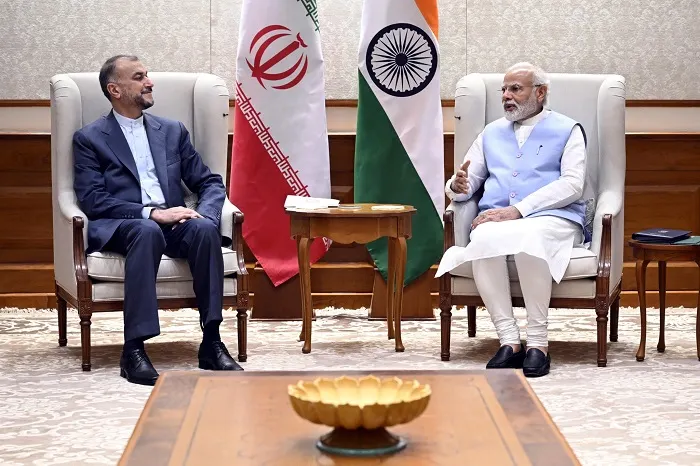National Security Advisor (NSA) Ajit Doval told the visiting Iranian Foreign Minister Hossein Amirabdollahian on Wednesday that India accords the highest respect to all religions and any "wrongdoers" will be dealt with at the level of the government and related bodies.
The top diplomat from Iran, a leader of the Shia Muslim world, arrived in New Delhi on Wednesday amid a raging controversy over religious tolerance in the country even though relevant Indian bodies have already taken a strong action against certain individuals for their offensive tweets and comments denigrating a religious personality.
As he called on NSA Doval in the evening, Amirabdollahian enumerated the wide areas available for the development of cooperation between the two countries and stressed on the promotion of relations in various dimensions, "regardless of third party" interventions.
Welcoming the progress made in the relations between the two countries, the National Security Advisor of India emphasised the proposal to form a strategic committee to expand relations in all fields and the readiness of the Indian government to develop relations at all levels in bilateral, international, multilateral and regional dimensions.

"The Indian official reiterated the respect of the Indian government and officials for the Holy Prophet (PBUH). Wrongdoers will be dealt with at the level of the government and related bodies," the Iranian Foreign Ministry said in a statement after the meeting.
Abdullahian, while expressing satisfaction with the position of the Indian authorities in dealing with the transgressors, also cited the religious tolerance, co-existence and historical friendship between the followers of all religions in India.
He also welcomed NSA Doval's proposals to further expand relations, especially in the field of transportation through the southern and northern corridors, especially the use of Chabahar port which is being developed by India.
Highlighting investment, trade, education and research and development sectors, Abdullahian stated that Iran has "no restrictions" on expanding relations with India.
"Describing the security and military relations between the two countries as appropriate, Dr. Amir Abdullahian called for further expansion of this cooperation and the use of capacities to counter terrorism at the bilateral and regional levels and to help the people of Afghanistan," the Iranian MFA stated.
Before wrapping his visit to the Indian capital, the Iranian Foreign Minister also called on Prime Minister Narendra Modi.
During the meeting, PM Modi warmly recalled the long-standing civilizational and cultural links between India and Iran, saying that both countries should work to accelerate exchanges in the post-Covid era.
Was happy to receive Foreign Minister Hossein Amirabdollahian for a useful discussion on further development of Centuries-old civilizational links between India and Iran. Our relations have mutually benefited both the countries and have promoted regional security and prosperity. pic.twitter.com/Ef5Sbtj7Gb
— Narendra Modi (@narendramodi) June 8, 2022
While discussing the ongoing bilateral cooperation initiatives, PM Modi also said that he is already looking forward to meeting the President of Iran Ebrahim Raisi at an early date.
Earlier in the day, External Affairs Minister S Jaishankar held wide ranging discussions with his Iranian counterpart as both diplomats reviewed the bilateral cooperation, including in trade, connectivity, health and people-to-people ties besides exchanging views on global and regional issues including JCPOA, Afghanistan and Ukraine.

An agreement on mutual legal assistance in civil and commercial matters was also signed between the two countries in the presence of two Foreign ministers.
Abdullahian left for Mumbai late Wednesday evening and will also travel to Hyderabad on Thursday. During his stay, he will also be holding talks with religious scholars and Iranian business people residing in India.
Also Read: After US exit, Iran hopes to lead global diplomacy to end conflict in Afghanistan




















